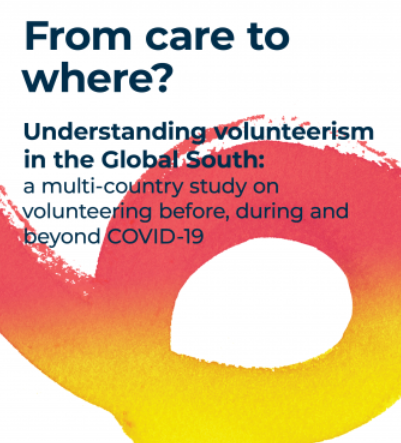
Gallup and UNV study on volunteering and COVID-19 released | UNV
As part of the next State of the World’s Volunteerism Report, UNV commissioned a study based on original multi-country quantitative data to understand patterns of volunteer participation during the global COVID-19 pandemic, volunteer motivations and experiences, and what these might mean for people’s voluntary participation.
For this study, nationally representative surveys with more than 8,000 people were conducted in eight countries – Bolivia, India, Kenya, Lebanon, Senegal, Thailand, Turkey and Uzbekistan – between March and April 2021.
The study clearly shows that when the world needed them, volunteers stepped up: more than three quarters of adults across the eight countries said that they had participated in volunteering activities over the past year.
In countries like Kenya, Senegal and Uzbekistan, almost all adults had volunteered in some way. Volunteering levels were high across all demographic groups, whereas men volunteered slightly more than women. Most people volunteered informally directly in their communities, but a significant number of people also volunteered through government programmes and campaigns.
However, volunteering levels were clearly affected by the pandemic, for example by lockdowns, individual circumstances and different volunteering opportunities. In some countries, volunteering declined, while in others it increased during the pandemic. There is no clear pattern across different countries and groups, although unemployed people were likely to volunteer less than in the previous year, possibly because they struggled to meet their own basic needs.
Despite the devastating impacts of the COVID-19 pandemic, people made plans to volunteer more this year – although this varies from country to country. Most people plan to engage in a variety of different volunteering activities, most commonly by directly helping their friends and neighbours.
Bigger shifts are likely to happen towards forms of volunteering that give people greater ownership of development processes. People are especially planning to engage in some form of participation, for example by giving feedback to authorities, or working with authorities to plan services – particularly in countries where this was less common in the past.
These findings serve to remind policymakers that the economic and social value of volunteering goes beyond the labour provided and services delivered. Volunteering is an important channel for people to help shape countries’ pathways out of the pandemic, and beyond.
EDITOR'S NOTES
The full study is published under:
The paper will form the basis for a chapter of the next State of the World’s Volunteerism Report.
For further information and interviews, contact: Jennifer Stapper, Communications, UNV; Jennifer.stapper@unv.org.










Add new comment